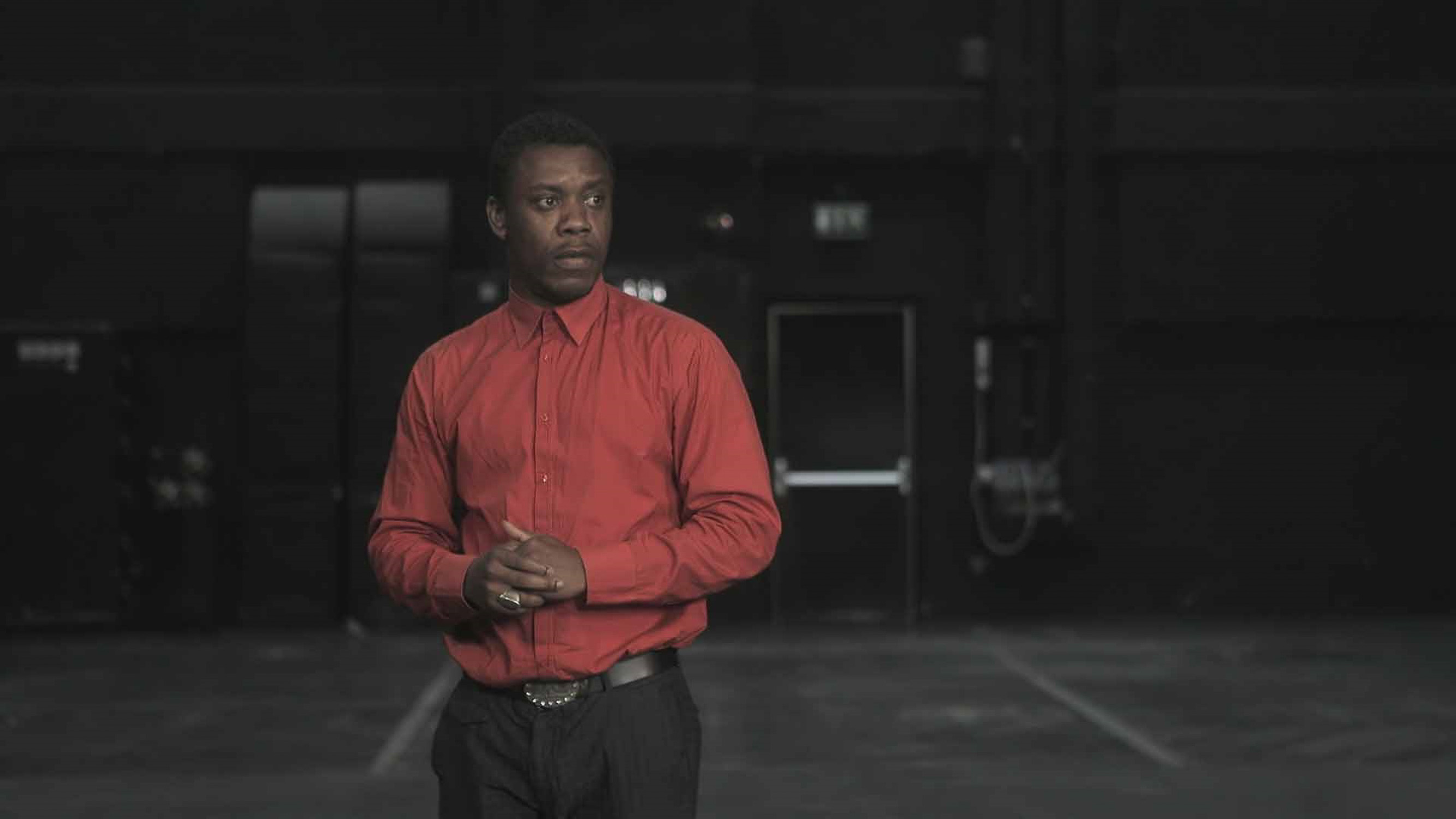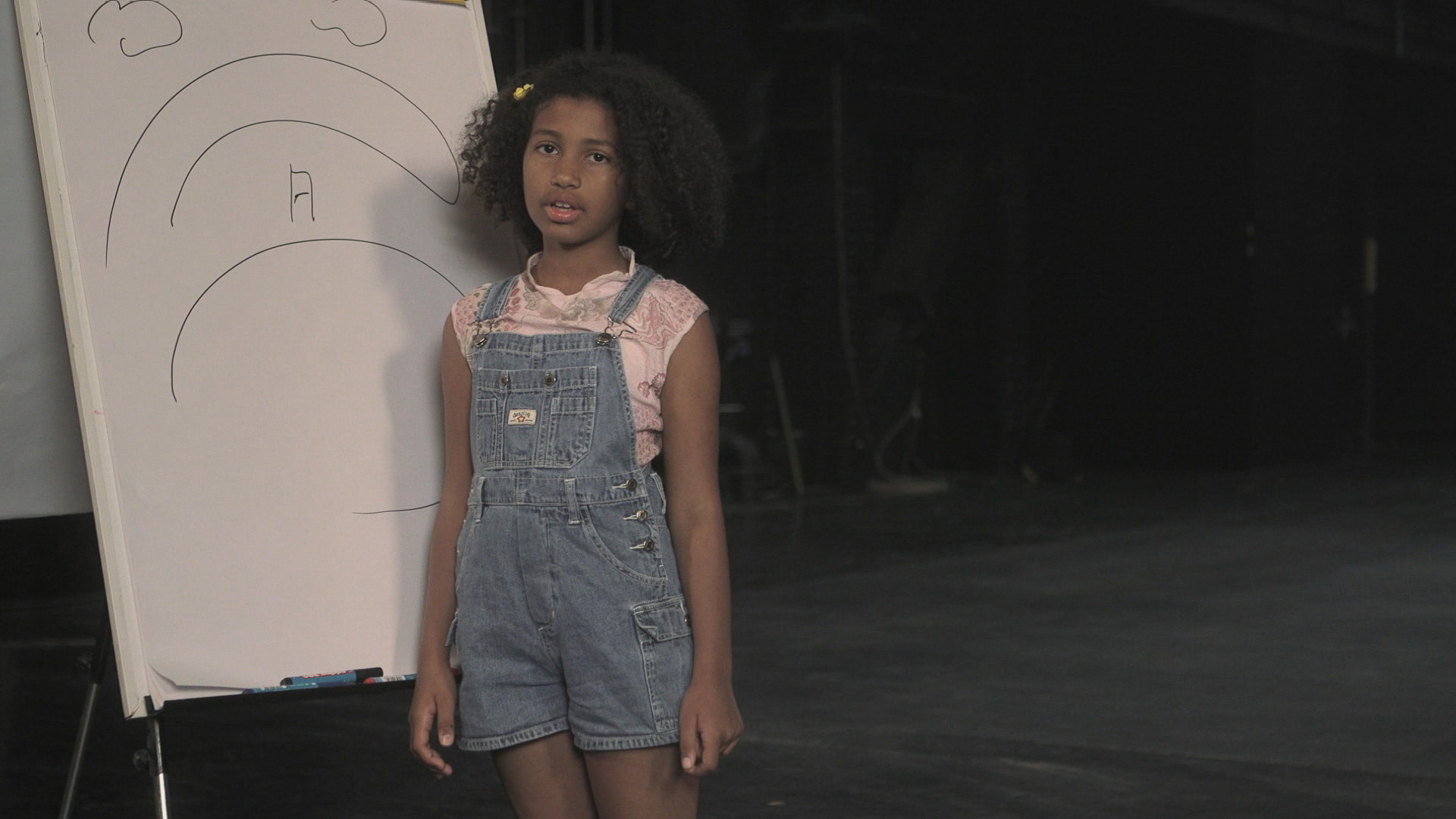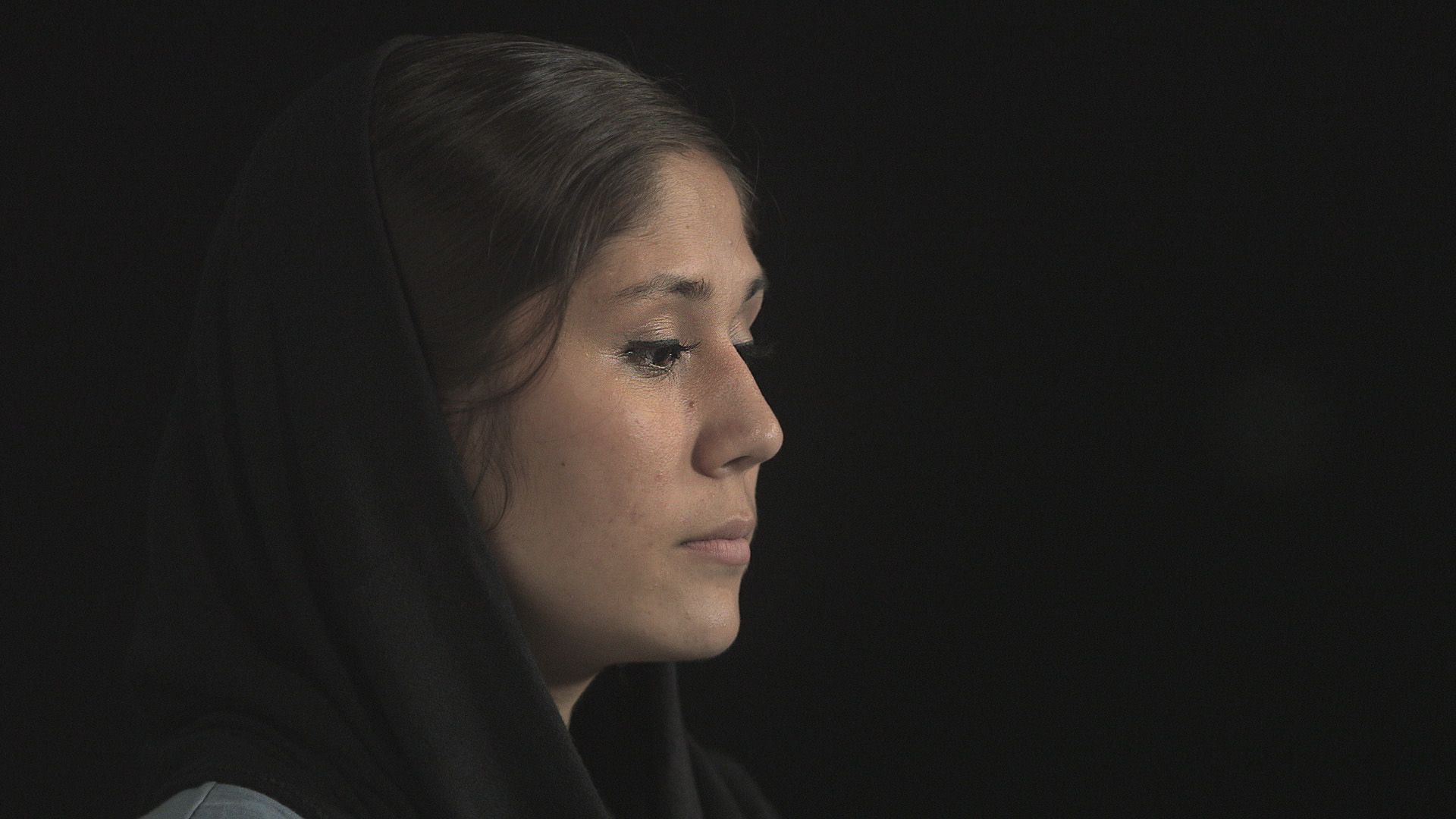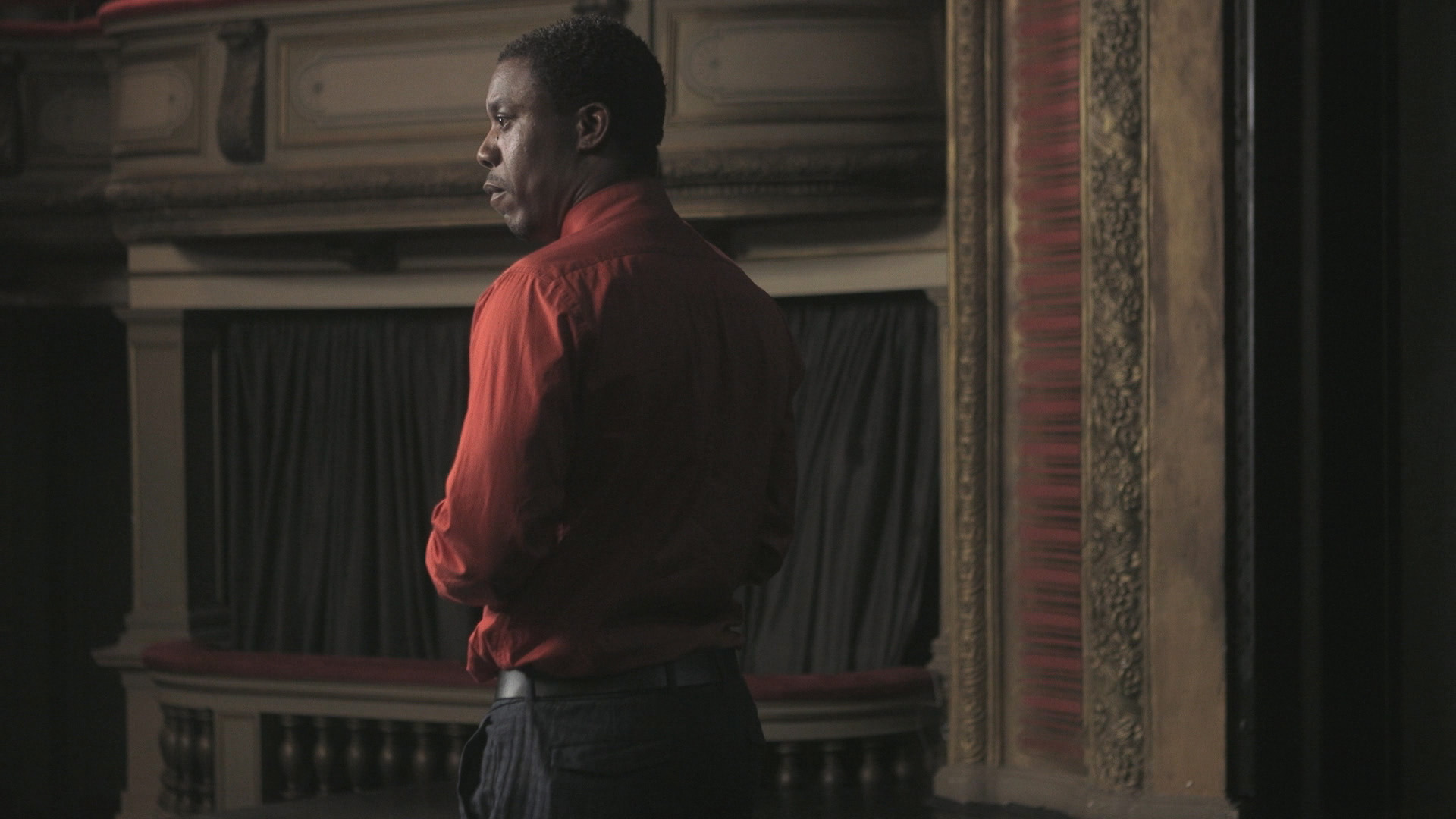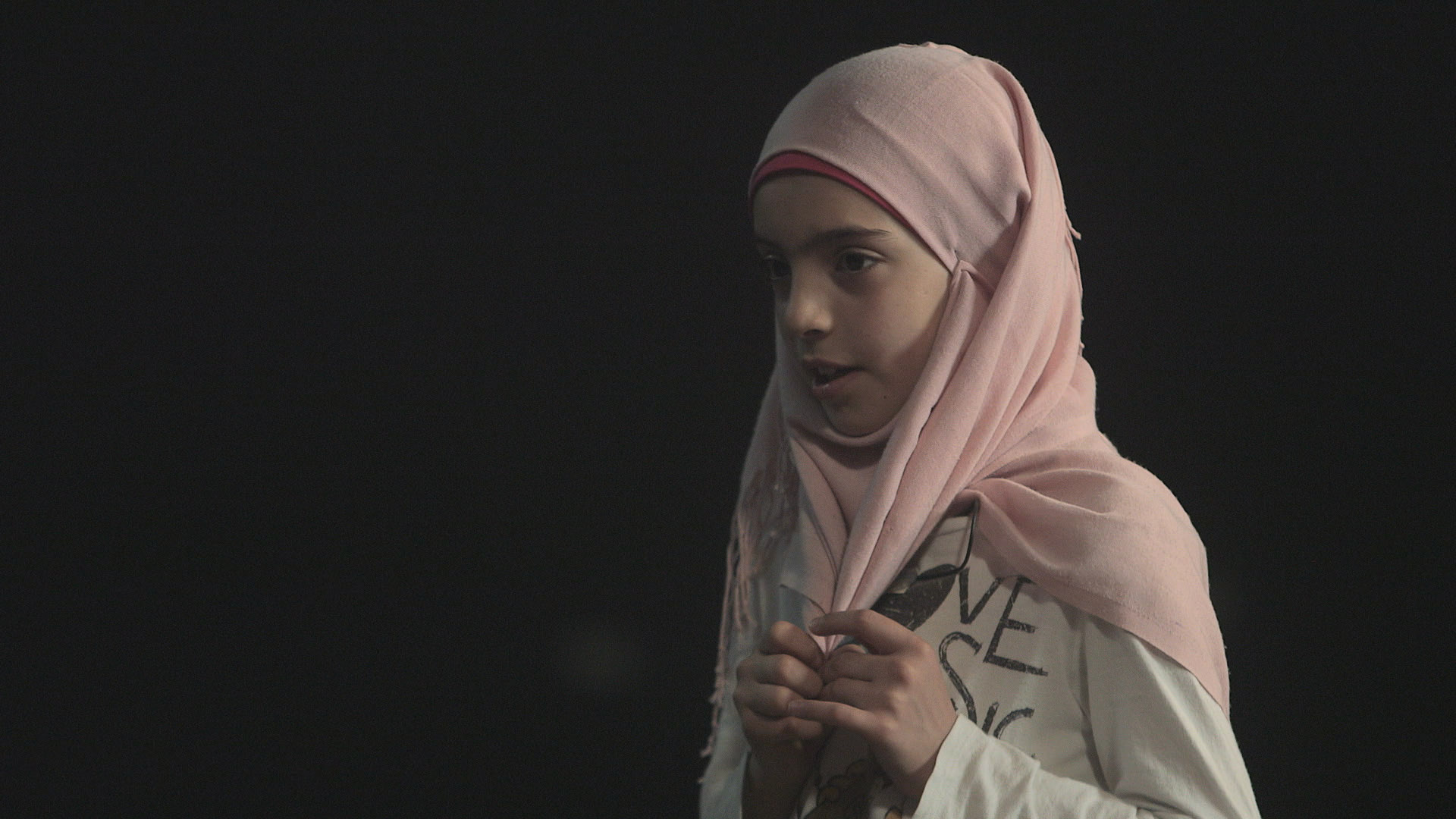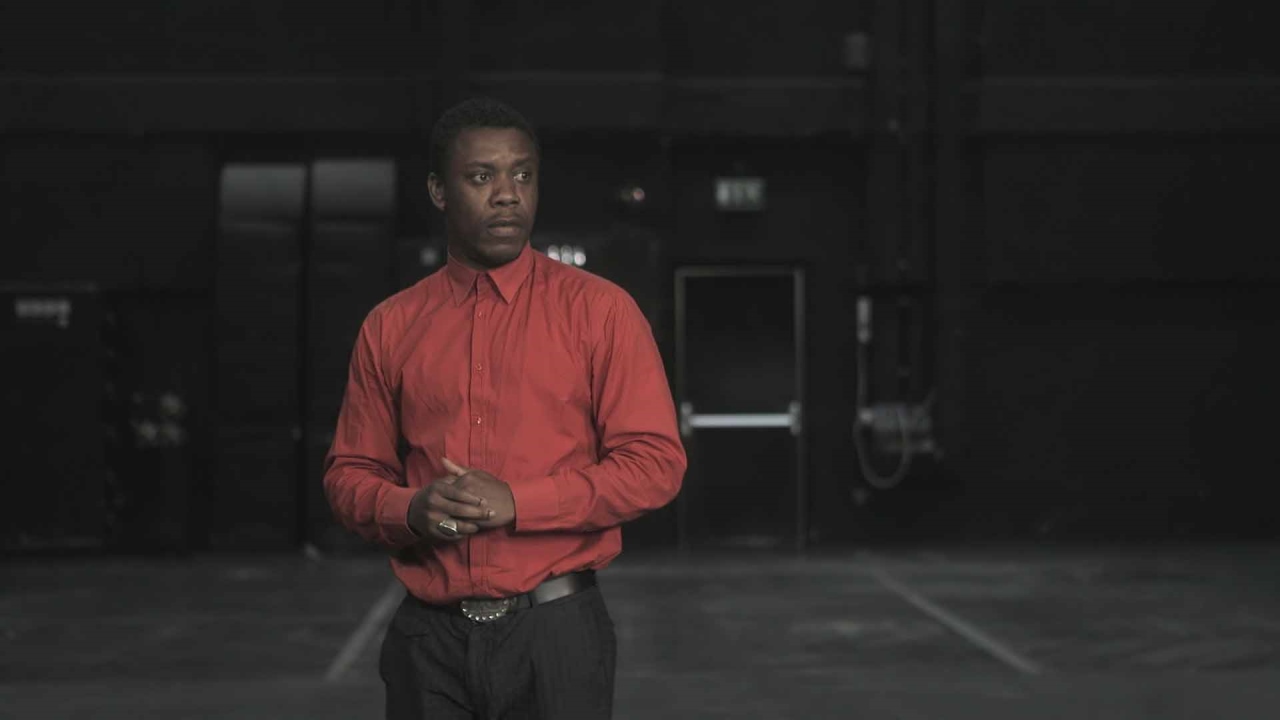Edition of 4
In his film installation Report (2016), Peter Friedl explores the permeability of language and identity boundaries. The source text is “A Report to an Academy,” Franz Kafka’s 1917 short story about the ape Red Peter’s becoming human—a parable about assimilation, which has been nearly buried under the burden of interpretation and constant homage. The only setting in Friedl’s complex film project, seemingly conform with classical dramatic theory, is the completely emptied stage of the National Theater in Athens, designed by German architect Ernst Ziller in the late nineteenth century. A total of two dozen actors of various origins and backgrounds appear one by one: women, men, children, almost always alone, but occasionally in pairs. A few of them make recurring appearances through the course of the film. In front of a camera sharply focused on them, they all recite by heart extracts from Kafka’s monologue-esque text in their mother tongue or a language of their choice: Arabic, English, Farsi, French, Greek, Swahili, Kurdish, Russian. German, the original language of the canonical Kafka piece, is deliberately absent. Friedl’s film, doing away with subtitles, comes to life through the presence and charisma of the actors and through the precise and thoughtful editing. With some omissions and variations, the work remains faithful to the original narrative throughout the fragmented polyphony of languages and gestures. It features predominantly non-actors, mostly protagonists of the current global refugee and migration movements, but the Greek actress Maria Kallimani is also part of the cast. The long process of casting took place in Athens.
Peter Friedl was born in Oberneukirchen, Austria, in 1960, and currently lives and works in Berlin. Since the early nineties, he has been building up a heterogeneous body of work (photography, painting, video, drawing, text) with a strong component of social and political critique. Friedl draws attention to the conflicts between contemporary politics and aesthetic narrative. He often turns to genres (tableaux vivant, documents) and subject matter (childhood, social exclusion) that are undervalued in the modern artistic tradition, and uses displacement and overexposure to challenge accepted systems of representation. Friedl pushes the boundaries of genres and codes for purposes that are clearly critical. He is best known for the photographic works he produced in South Africa, Haiti, Brazil and other places that were the scenes of Europe’s colonial past, and for his work based on American philosopher John Rawls’ theory of justice. He has published numerous essays and critical texts on theatre and aesthetics.
